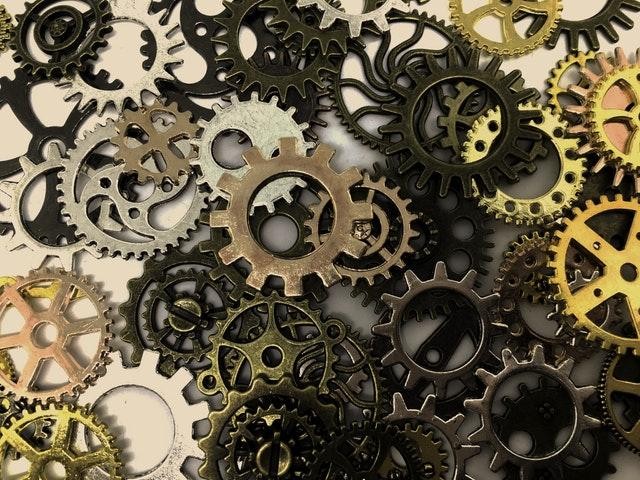It can be hard to choose the right metal for your project, especially if you are completely unaware of the differences among the available options. If you are to choose between copper, bronze, and brass, it is imperative that you learn about their individual features and how you can benefit from those features first. You wouldn’t want to spend huge sums of money on a metal that isn’t suitable for your project. The following information can help you.
Bronze
Not having a very strong sheen, the bronze finish is much dimmer than that of brass and copper. This is mostly due to the fact that bronze is made up of copper and tin. The main element in bronze is copper and when the mixture is altered, different types of bronze can be produced.
One good way to tell if you’re dealing with bronze is to hold a magnet to it. Bronze materials are not magnetic even if held to the strongest of magnets. It is strong and durable, too. When soaked in water or exposed to moisture, it doesn’t corrode or form rust. Aside from that, bronze is able to resist the effects of friction, which is why it is often used for making parts and gears for ships.
Brass
With a bright and light sheen, brass looks a lot like gold. By adjusting the proportion of zinc and copper in the alloy, many variations of brass can be formed. Unlike bronze, brass is slightly magnetic. A strong magnet has to be placed close to brass before it can attract the metal. This is, in fact, one way to tell which among a pile of brass, copper, and bronze scrap is brass.
Even though brass is not as durable as bronze and copper, it still is a strong material. Because of its high density and corrosion resistance, brass is perfect for making building fixtures and accessories, such as door knobs, locks, stairway railings, among others. Brass can be found in plumbing and electrical systems as well, anywhere square brass tubing is needed.
Copper
Copper is a pure element. Like bronze, it is not attracted even to the strongest of magnets. Though durable, copper is also a flexible material. Apart from being hard to break or crack, it can bend to change its shape as well, due to its excellent malleability and ductility.
One of the most widely used metals, copper can be found in plumbing and wiring systems. It is a better electrical conductor than silver. Because it is corrosion resistant and it develops patina when exposed to the elements, it is being used to make roofing for homes and commercial buildings.
Now that you know the differences between these three valuable metals, it will be easier for you to choose which one is best for your next project. The only thing that is left for you to do is to look for the right supplier. Companies like Rotax Metals, which have been providing the highest quality square brass tubing, extrusions, and other brass suppliers are your best bet.
Sources:
Learn about the Properties and Uses of Zinc Metal, TheBalance.com
The Characteristics of Bronze Metals, Sciencing.com


